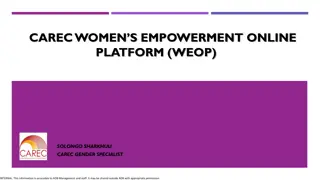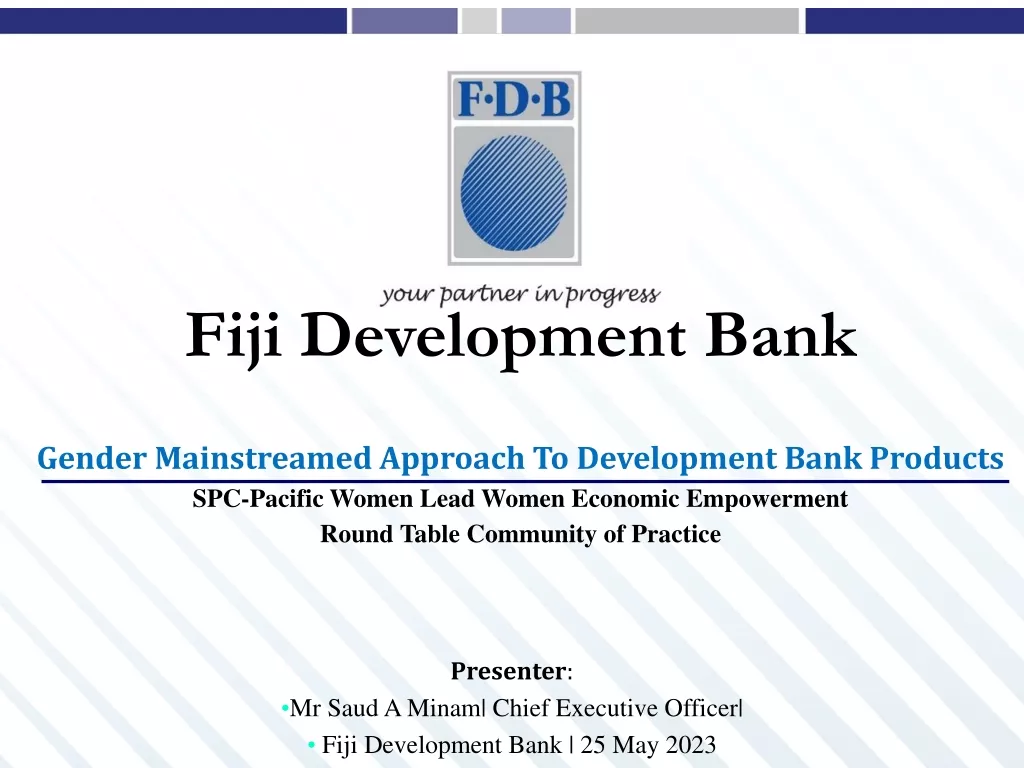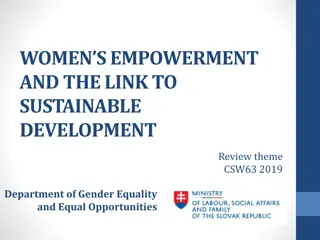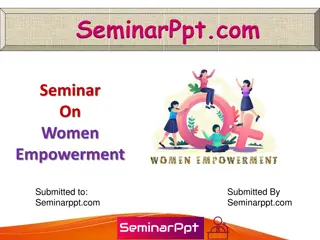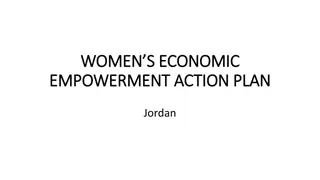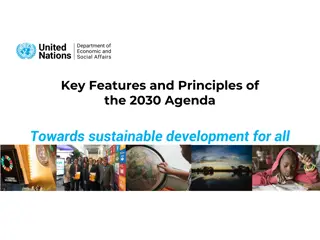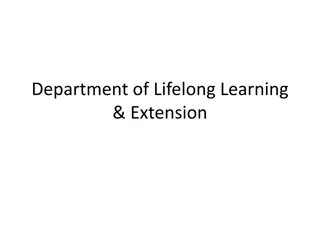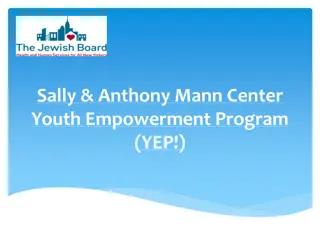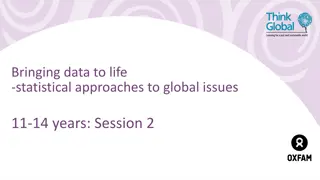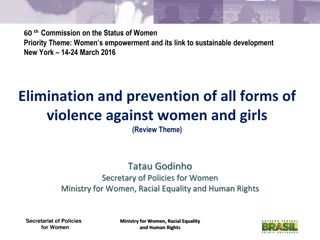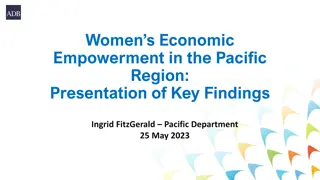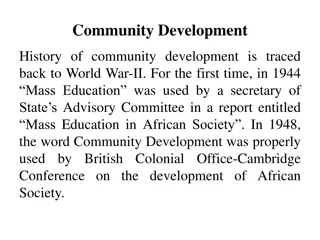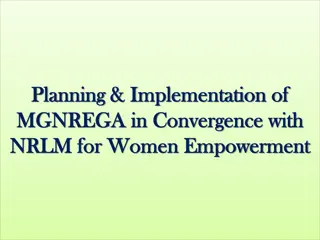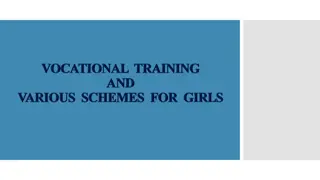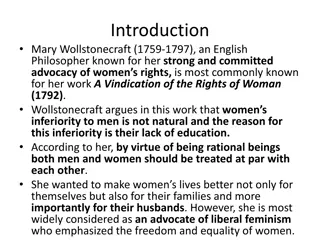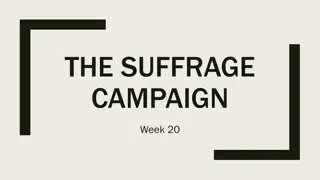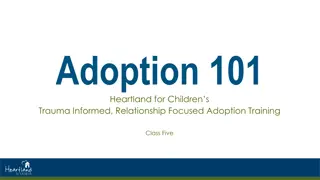Empowering Women for Sustainable Development: The Women's Empowerment Principles
Gender equality and women's empowerment are essential for sustainable development, recognized as fundamental human rights. The Women's Empowerment Principles (WEPs) emphasize the business case for promoting women's economic participation, which leads to enhanced economic growth, social development, and improved quality of life. By supporting women's rights and empowerment, businesses can contribute to building strong economies, just societies, and achieving sustainable development goals while positively impacting GDP.
Download Presentation

Please find below an Image/Link to download the presentation.
The content on the website is provided AS IS for your information and personal use only. It may not be sold, licensed, or shared on other websites without obtaining consent from the author. Download presentation by click this link. If you encounter any issues during the download, it is possible that the publisher has removed the file from their server.
E N D
Presentation Transcript
Introduction to the Women s Empowerment Principles (WEPs) - a joint initiative of the UN Global Compact and UN Women
Contents I. Women s Rights = Human Rights II. Gender Equality in the Sustainable Development Agenda III. Gender Equality: Facts and Figures IV. The Business Case: Equality Means Business! V. Women s Empowerment Principles (WEPs) VI. Global Compact Local Networks: Call to Action & Engagement Opportunities
Womens Rights = Human Rights Gender equality is a fundamental human right recognized in international human rights treaties and internationally-agreed on documents, including: The Universal Declaration of Human Rights (UDHR) ILO Declaration on Fundamental Principles and Rights at Work The Convention on the Elimination of All Forms of Discrimination against Women (CEDAW) The International Covenant on Economic, Social and Cultural Rights (ICESCR) Beijing Declaration and Platform for Action While governments have a primary duty to protect human rights, businesses have a responsibility to respect human rights, including the rights of women and girls. Further, the UN Global Compact and the WEPs call on businesses to support women s rights. The United Nations Global Compact s Human Rights and Labour Principles The Guiding Principles on Business and Human Rights
Womens Empowerment and Sustainable Development Women s empowerment is a critical driver of sustainable development. Empowering women to participate fully in economic life across all sectors and throughout all levels of economic activity is essential to: Expand economic growth and build strong economies Promote social development and establish more stable and just societies Improve quality of life for women, men, families and communities Propel businesses operations and goals, and enhance business performance Research shows that raising female employment to male levels could have a direct net impact on GDP of 34 per cent in Egypt, 12 per cent in the United Arab Emirates, 10 per cent in South Africa, and 9 per cent in Japan as a result of an increased labor force.
Womens Empowerment and Sustainable Development Women s empowerment is not only a development goal in itself but also a key ingredient to achieving a wide range of sustainable development targets. When addressing global challenges, it is imperative that the particular impacts on women and girls are considered and that the talents, skills and innovation of both women and men are leveraged to bring lasting change. The Food and Agriculture Organization estimates that if women had the same access as men, agricultural output in 34 developing countries would rise by an estimated average of up to 4%. This could reduce the number of undernourished people in those countries by as much as 17%, translating to up to 150 million fewer hungry people.
Gender Equality: Fact and Figures Structural, cultural and unconscious barriers continue to hinder women s and girl s rights and contributions to economic growth, sustainable development and business productivity and performance: Women are underrepresented in power and decision making roles Women receive unequal pay for equal work Experience physical and/or sexual violence Are not offered the same opportunities in jobs, education, training and professional development Women are economically disadvantaged and lack equal opportunity to compete for business Gender equality continues to be under-prioritized by decision makers
The Business Case: Equality Means Business! Opportunities Risks Supporting women s health leads to higher return and reduces absenteeism Less competitive Legal risk from unlawful discrimination Addressing violence against women reduces company costs Lower productivity Creating diverse workplaces increases productivity Missed opportunity to increase market share Investing in women-owned businesses yields higher return on investment Less innovation Reputational risk Taking advantage of women s consumer power is a smart business decision Increasing women in leadership roles leads to organizational effectiveness and a prosperous bottom line
The Business Case: Equality Means Business! Fortune 500 companies with three or more women corporate directors outperformed those with no women on the board 84% 60% 46% Reported increases in Return on Invested Capital Return on Equity Return on Sales Source: Catalyst, 2011
Womens Empowerment Principles (WEPs) The Women s Empowerment Principles (WEPs) is a joint initiative of UN Women and the UN Global Compact Launched on International Women s Day 2010 following a year-long international, multi-stakeholder consultation process Provide a roadmap for business on how to empower women in the workplace, marketplace and community Help companies mainstream gender equality throughout business operations and other areas of corporate sustainability Elaborates the gender dimension of good corporate citizenship, the UN Global Compact, and business' role in sustainable development
CEO Statement of Support for the WEPs We, business leaders from across the globe, express support for advancing equality between women and men to: Bring the broadest pool of talent to our endeavours; Further our companies competitiveness; Meet our corporate responsibility and sustainability commitments; Model behaviour within our companies that reflects the society we would like for our employees, fellow citizens and families; Encourage economic and social conditions that provide opportunities for women and men, girls and boys; and Foster sustainable development in the countries in which we operate. Nearly 1,000 CEOs Have Signed the CEO Statement of Support and Committed to Advancing Gender Equality!
Why Sign the CEO Statement of Support Demonstrate leadership on gender equality & lead by example Use the 7 Principles and WEPs tools & resources to assess company policies and programmes and develop an action plan Connect with fellow businesses and other stakeholders Engage in dialogue and collective action & share good practices and lessons learned with others Join exciting engagement opportunities and WEPs related events Showcase the gender dimension of good corporate citizenship and business' role in sustainable development and corporate responsibility Communicate progress to stakeholders When you embrace these Principles, you join a great and gathering movement to unleash the power of women and change the world By working together based on shared values, we can advance the common good. - UN Secretary-General Ban Ki-moon
Principles into Practice: Implementation of the WEPs Leadership commitment to mainstream gender equality throughout corporate sustainability and other relevant strategies and operations Commit Apply a gender lens when assessing risks, opportunities, and impacts Assess Apply a gender lens when defining goals, strategies, policies, and metrics Define Implement gender equality strategies and policies throughout the business and across the value chain Implement Measure and monitor impacts and progress towards goals Measure Communicate progress and strategies while engaging with stakeholders from continuous improvement Communicate
Transparency & Reporting Demonstrate Progress Gain Benchmark Recognition Track Progress Detect Gaps Replicate Success
Global Compact Local Networks: Call to Action! Resolution adopted by the UN General Assembly (A/RES/66/223): Requests the United Nations Global Compact Local Networks to promote the Women s Empowerment Principles and to create awareness of the many ways in which business can promote gender equality in the workplace, marketplace and community
Local Network Engagement Opportunities Collaborate with local networks or other partners on an event to raise awareness about the WEPs. Support/assist translate WEPs materials into the local language(s) Host, collaborate or participate on webinars on topics related to the WEP Collect examples of what your company is doing to empower women and advance the goals of the WEPs and share with others Foster peer reviews and discussion of what companies are doing on company efforts to implement the WEPs Encourage other companies to sign the CEO Statement of Support Launch local initiatives related to the WEPs





